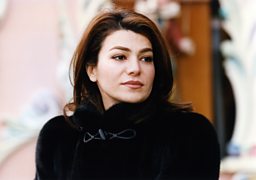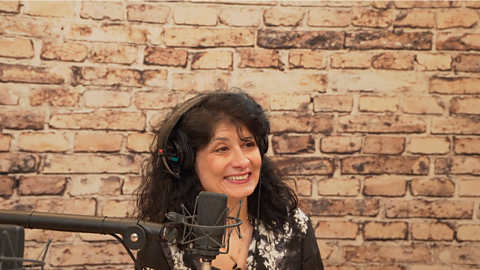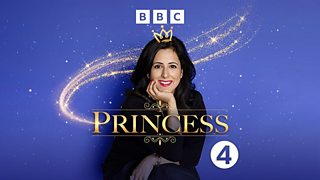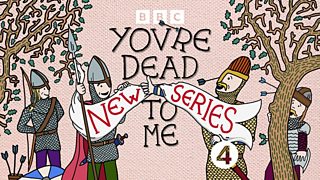Leila Pahlavi – Six things we learned about the tragic life of an Iranian princess
In the Radio 4 podcast, Princess, Anita Anand and her guests delve into the lives and stories of their favourite fictional – or historical – princesses.
Anita, historian Andrew Scott Cooper and comedian Shaparak Khorsandi, whose own family left Iran shortly after the revolution started, explore the life of Leila Pahlavi – the last princess of Imperial Iran.
1. From her youngest days, Princess Leila Pahlavi was considered an icon
Born in 1970, Leila Pahlavi grew up during a period in Iran’s history that was prosperous and stable. She was the youngest daughter of Mohammad Reza Pahlavi, Shah of Iran, and his third wife, Farah Pahlavi – as such, she carried the title Imperial Highness Princess Leila Pahlavi. The Pahlavi family were seen as the epitome of style and glamour, and Shaparak Khorsandi recalls that Leila and her brother Ali Reza were regarded with fondness and curiosity, “in the same way that people might look at pictures of William and Harry when they were little.”

2. Leila Pahlavi was nine years old when her family was forced into exile
Goodwill for the Shah and his family was not shared by everyone – some on the left still resented the US- and UK-backed coup d’état of 1953 that deposed the democratically elected government and installed him. However, the real drivers of the Shah’s downfall were the worsening economic climate from the mid-1970s, a revival of Islam, and the return of exiled cleric Ayatollah Khomeini.
Soon it was the Shah’s time to go into exile. By the end of 1978, his two oldest children had already been sent abroad, with the rest of the family holed up in the Niavran Palace, north of Tehran. Leila and Ali Reza could hear people chanting “Death to the Shah!” outside the palace, and saw it written on the sides of buildings on rare trips out. By mid-January 1979, the Pahlavis had left Iran.
3. The family lived in fear for the first year of exile
After leaving Iran, Leila and her family endured what Andrew Scott Cooper calls “a 14-month loop around the world where no government would host them.” The sense of jeopardy was heightened by the fact that Ayatollah Khomeini had sent assassins after them. At various points Leila and Ali Reza were separated from their parents because of security concerns. By the time the family were granted asylum in Egypt, the Shah was dying. Leila had not only lost her country, but she was also about to lose her father.
4. She continued to be “a soul without a state”
After Cairo, Leila returned to the US where the family had previously stayed until the Iran hostage crisis started. She started studies in literature and philosophy at Brown University, but soon drifted into modelling, capitalising on her looks. While it may have seemed like a glamourous lifestyle from the outside, Leila was still bereft and feeling like a “soul without a state” as Andrew Scott Cooper puts it. Her mental health declined and she started to slip into substance abuse and suffered from several eating disorders.

"You mention her name and people tear up."
Shaparak Khorsandi gets emotional when discussing Princess Leila's tragic death.
5. She symbolises the loss of a generation
Leila spent the final year of her life in a hotel in London. Despite time in rehab, she “slipped through the cracks,” says Andrew. She survived what appears to have been an overdose on one occasion, but, with no support network she took another overdose soon after. This time it was fatal. She was found emaciated, and with cocaine, barbiturates and prescription drugs in her system. The poignancy of Leila’s passing is underlined when Shaparak says: “London would have been full of Iranians that would have heeded her call had we known. She was part of the Iranian diaspora, and her story represents a massive part of all of our sadness.” She was 31 years old when she died.
6. She is more popular now than she was when she left Iran
Leila’s brother Ali Reza committed suicide a decade later, another tragic twist in the tale of the Pahlavis. However, the family legacy lives on in an Iran that is now in upheaval, reacting against some of the things that happened after the revolution.
“In some ways, the family is actually more popular inside Iran now than they were when they came out,” says Andrew Scott Cooper. “You sort of wish that Leyla and Ali Reza had lived to see the family name in a way restored… they would have seen what their mother, who is now in her eighties, is seeing, which is this tremendous wave of sympathy and genuine interest in the family inside Iran.”
More from ´óÏó´«Ã½ Radio 4
-
![]()
Princess
Anita Anand and her guests explore princesses - delving into their favourite fictional, or historical, princess.
-
![]()
Lady Killers
Lucy and a crack team of female detectives investigate the crimes of women from the 19th and 20th Century from a contemporary, feminist perspective.
-
![]()
Sideways
Best-selling author Matthew Syed explores the ideas that shape our lives with stories of seeing the world differently.
-
![]()
You're Dead To Me
The comedy podcast that takes history seriously. Greg Jenner brings together the best names in comedy and history to learn and laugh about the past.





